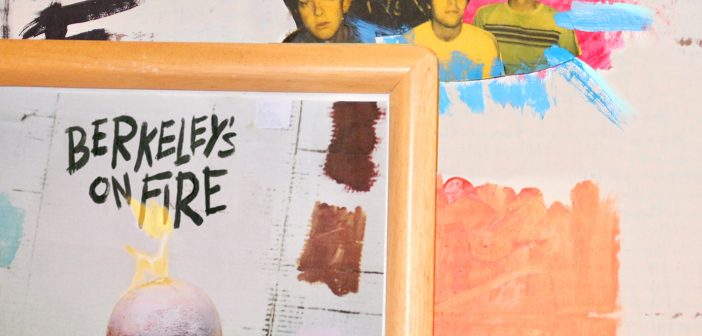By Erika Kellerman
The millennials too young to be considered millennials and the Gen-Zs too old to be considered Gen-Zs are represented through SWMRS’ 10 track indie-garage-(loosely)pop-punk sophomore album, Berkeley’s On Fire. Produced by Rich Costey (Muse, Death Cab for Cutie) Berkeley’s On Fire is reminiscent of the grungey side of early Rage Against the Machine and Beastie Boys.
The growth from SWMRS’ debut LP Drive North to Berkeley’s On Fire, lyrically, melodically, and instrumentally, is apparent in the first song on the LP by the same name, “Berkeley’s On Fire.” The track sounds different from what the group has done before. It sets the tone for the whole album, in a “we’re done with your shit, and we’re not taking it anymore and here’s what we have to say” kind of way. “Berkeley’s on Fire/ Your TV lies/ We’ll be alright/ Berkeley’s on Fire” is repeated, reminding listeners that even during these desperate and fearful times, everything is going to be okay.
This album is for the hopeless that yet remain hopeful living in today’s political climate in America. Tracks like “Lose Lose Lose” and “Hellboy” feel like headlines ripped from the news all over the country, seared into the hearts and minds of many feeling demolished by the atmosphere of modern-day-Nazis, school shootings, police brutality, people like Milo Yiannopoulos, and those taken advantage of by the NRA.
These songs also express the frustrations this generation has with the people leading the government, feeling powerless in times where they should be succeeding and thriving by the promised American dream. SWMRS give fans the ability to express these frustrations through “Lose Lose Lose”’s chorus that sings “I swore/ If I got pushed down one more time/ I’d lose lose lose my mind/ I’d lose lose lose my mind” and the later bridge “Death to the motherf*cking fascist inset.” “Lose Lose Lose” is a protest song denying the majority of their power with high energy and a quick bassline/drum combination.
“Hellboy” is angry and sarcastic, calling out America for its plastering of school shooters all over the media and the romanticisation of violence in the name of masculinity. In the line, “I guess I’m due to take the blame/ for my American brain” it could be referring to the fact that only in America does society blame shootings caused by toxic masculinity and cis-white-male fragility, on mental health or the victim(s), therefore giving the shooter a slap on the wrist, making him the victim. It is also critical of how America’s culture of gun violence has created a weird obsession with guns, where this problem happens nowhere else in the world.
All in All, Berkeley’s On Fire is what a sophomore album should sound and feel like. It should make listeners want more, even with ten tracks. Berkeley’s on Fire does just that.




